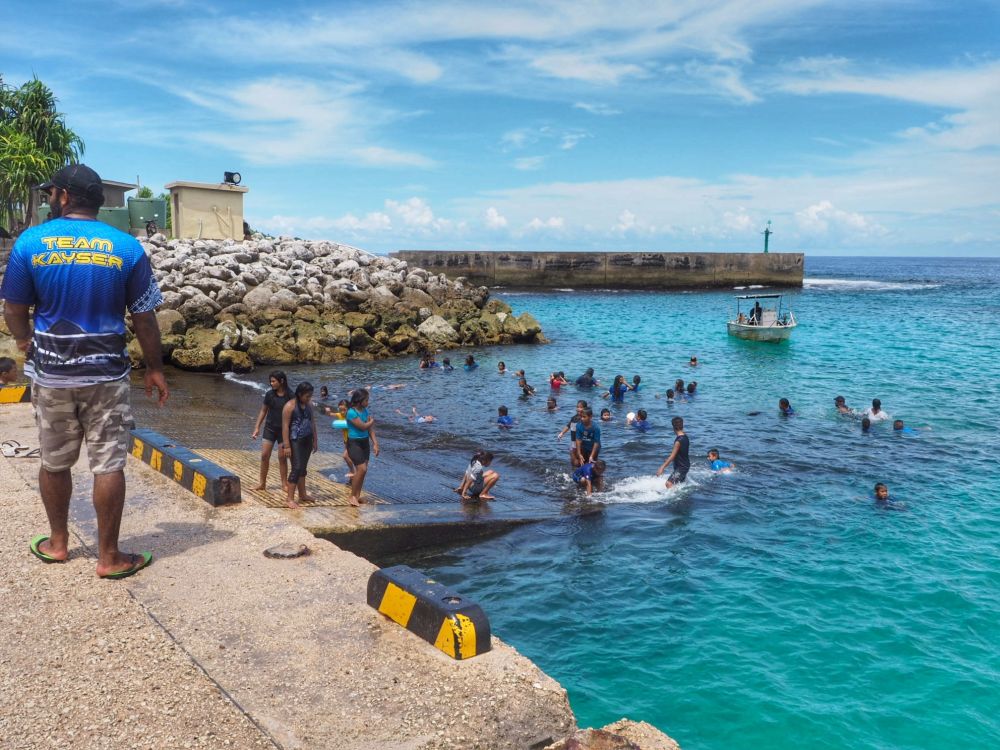Nauru cannot be considered a picturesque country by any stretch. It has only one expensive airline and only one-star hotels, to say the least. There is nothing to see, the beaches are unsuitable for swimming and the climate is unbearable. So what does it offer? The mystique of an undiscovered, unknown destination.
After the two tiny city-states of Vatican City and Monaco, Nauru is the third smallest country in the world at 21 km2 – or the smallest country in the world that is not made up of a single city. It is also third in population, after Vatican City and Tuvalu, with 11,000 inhabitants. It has the distinction of being the only two countries in the world without an official capital: Switzerland and Nauru.
The country can be reached exclusively by flights operated by Nauru Air – or as they call it, “Our Airline” – from four cities: Brisbane (Australia), Nadi (Fiji), Majuro (Marshall Islands) and Tarawa (Kiribati). Until 1 October, there were also connections to Honiara (Solomon Islands) and Phonphei (Micronesia), but these were discontinued by the new president appointed in August due to under-utilisation.
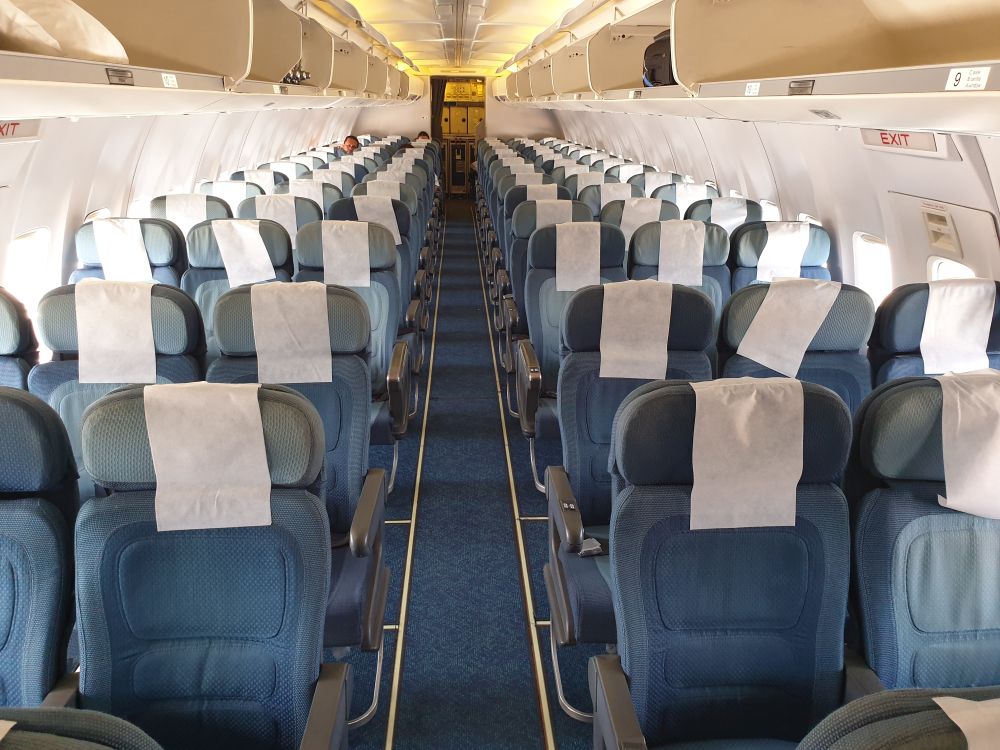
I flew in from Kiribati, and the 132-seat plane comfortably accommodated four of us. The crew was larger than the paying customers, but fortunately the flight was not cancelled. As we landed and taxied down the runway, I saw that car traffic had been stopped. The giant 737 had rolled over the only highway in the country.
While all the countries we visited in Oceania were characterised by smiles and a positive outlook on life, Nauru was the only one with a sense of melancholy and hopelessness. No wonder – the economic boom of yesteryear is gone. Nauru was a major phosphate producer, and while mining was booming, the country was enjoying its golden age. The state (as in Alaska) paid dividends to each resident from the profits of the mines, and many enjoyed the splurge: buying all sorts of expensive possessions and going on long journeys.
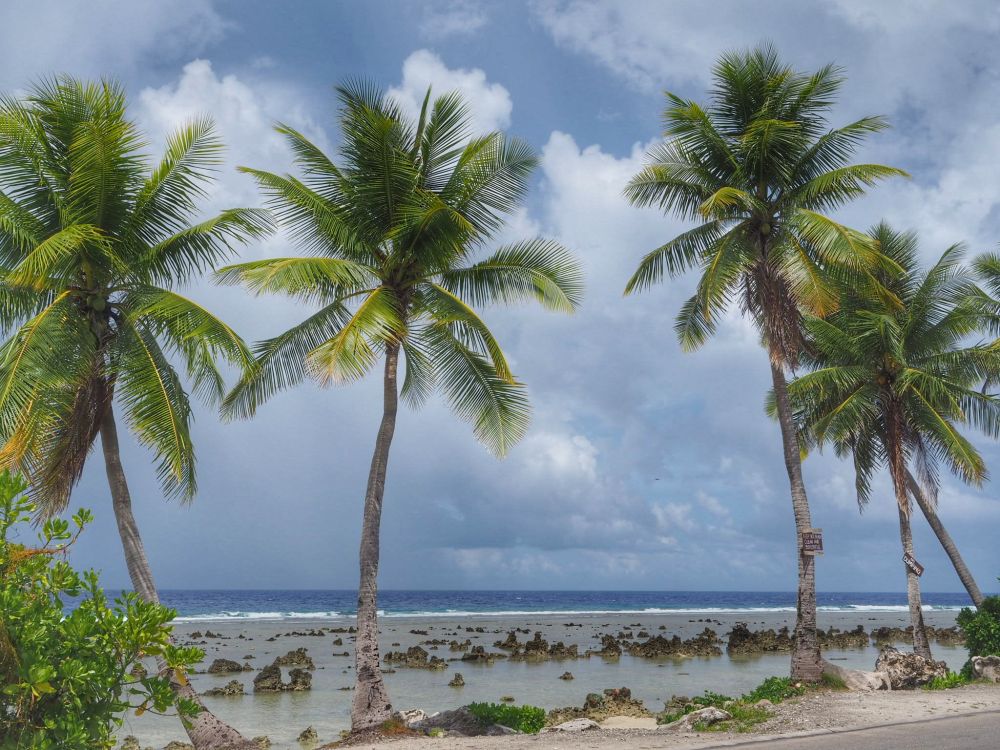
When the mines’ yields dwindled, “luckily” the refugee business came along, or Australia’s accommodation of immigrants who entered the country while their claims were being processed. Although exact figures are not known, one local said that at the busiest time there must have been around 2,000 refugees on the island, but now there are only a few hundred. They used to live in a tented camp in the interior of the country, hidden from prying eyes, but when Nauru hosted a regional summit, the remaining refugees were moved to the coast where the locals live. They knew that the leaders of other countries wanted to see how the refugees were being treated and did not want to show them the miserable conditions. After the summit, it would have been an embarrassment to move them back, so they stayed in the hastily erected mini-camps.
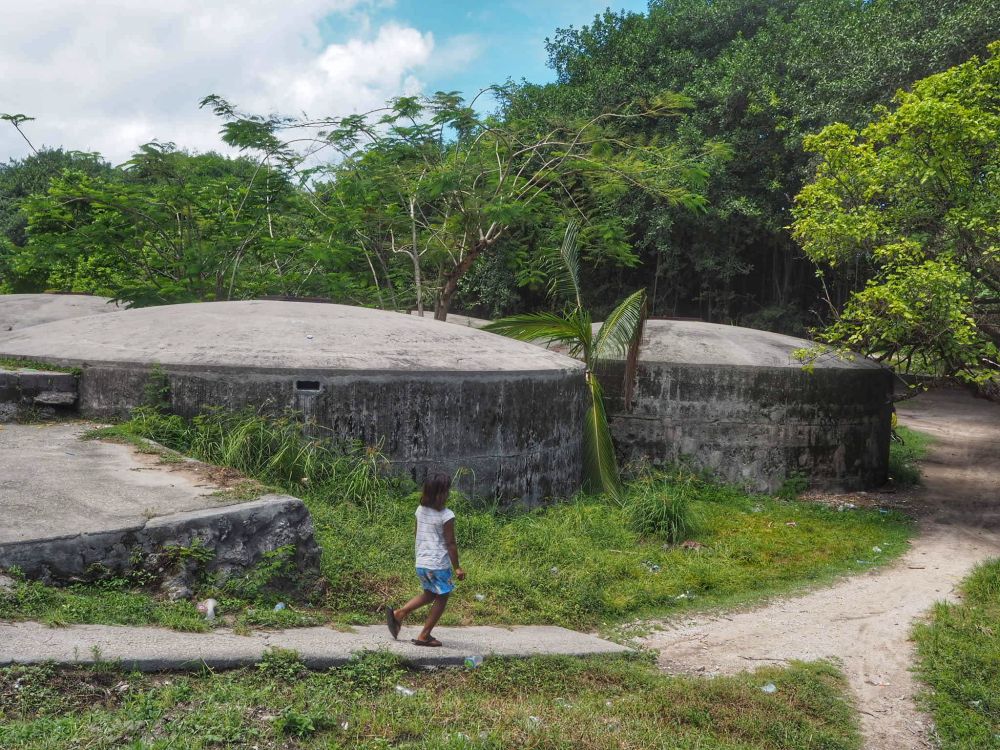
If there is no money to be made from refugee camps, Nauru will have little scope for economic development. The only way out would be tourism, but this is hindered by what is the archipelago’s greatest strength: close family ties. My hosts are educated people. He was Minister of Justice in the previous government and she studied tourism in Australia. Even though they know exactly what they should be doing, they have to put their proposals to people who only sit in positions of responsibility because they are relatives or friends of the President. And that is the case in every single high position, because helping the family is the most important value here.
On the one hand, this is an obstacle to the effective implementation of anything, be it waste collection or tourism development. On the other hand, it is the key to survival, because if anyone gets into financial or other difficulties, all the relatives, near and far, will reach out to help. And not only relatives. It can easily happen that if a child is being abused at home, not only physically but also verbally, i.e. he or she does not feel comfortable with his or her parents, he or she will sneak into the home of a best friend or a distant aunt, where he or she will be taken in without a word.
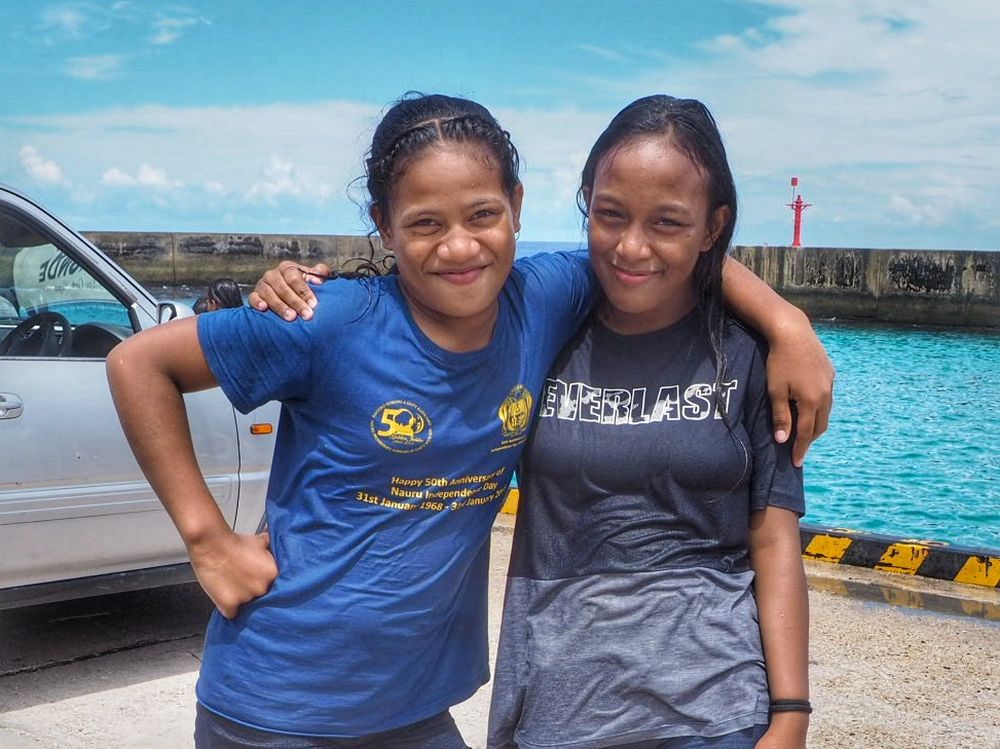
My host has ten siblings, all with at least three children, but since the world began, they have been having dinner together every Sunday night – often about fifty of them. They sit out on the terrace or in the garden of one of their houses, and each brings something from home to eat together. When I ask him if he would like to live in Australia or elsewhere, he immediately shakes his head: no, he would never leave his extended family.
As the country consists of a single island, with a 19-kilometre road running around its coast, I didn’t have to think much about what to do with my time: I walked around the country. So Nauru was the first and only country of the 132 I visited where I saw every single house, because they are all close to the main road. I spent two full days here, so the first day I walked along one coast from the southern tip of the island to the northern tip, and the next day I walked along the other coast.
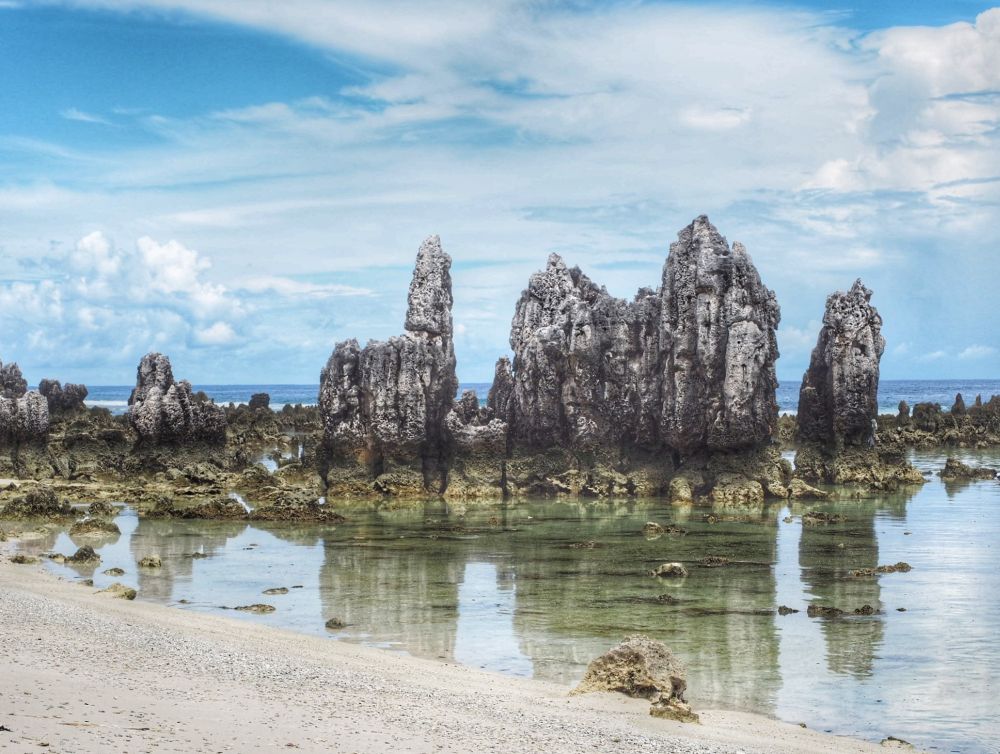
I took my host’s huge umbrella with me – against sunstroke, storms and rather unfriendly stray dogs. 19 km spread over two days is not an athletic feat, but it is a bit of one here, as you either have to walk in 32-33 degrees in incredibly humid air, on a scorching sun or in a tropical storm. There is no transition – so-called pleasant weather – here. I can only illustrate this by saying that when I reached my destination on the afternoon of the first day and got out on the road to hitchhike home, the first car stopped. Three guys were sitting in it, and when they looked at me, without any questions, they put a bottle of cold water in my hand and only then asked who I was and where I was going.

I was most curious about the Budapest Hotel. If I didn’t know in advance that there was one, I would walk right past it because there was no signage. In fact, it wasn’t even clear if it was open, the ground floor at least looked like a haunted house. The air-conditioning units advertised on their website were rusty wrecks, the salt spray from the nearby sea having degraded all the equipment in a few years. Upstairs, the situation is somewhat better, and rooms are available for rent at list prices of between 250 and 320 Australian dollars (with a discount of 160). The name is surprising, but the explanation is also unique: the former president of Nauru, Marcus Stephan, was a famous weightlifter who competed in world competitions. It was here that he met a Hungarian weightlifter who was looking for investment opportunities (I was unable to find out his name). The Nauru president persuaded him to open a hotel on the island because accommodation was scarce. The Hungarian athlete had never been here, but he financed the construction of the hotel, which he named the Budapest Hotel. It couldn’t have been a big deal because it has since been sold to a Pakistani investor who lives in Dubai but is managed by an Indian manager. Since opening in 2017, no signage has been placed on the fence surrounding the building, so much to my chagrin I was unable to take a photo of a Budapest Hotel sign. Supposedly the sign has arrived from Brisbane, but there hasn’t been time to install it yet.
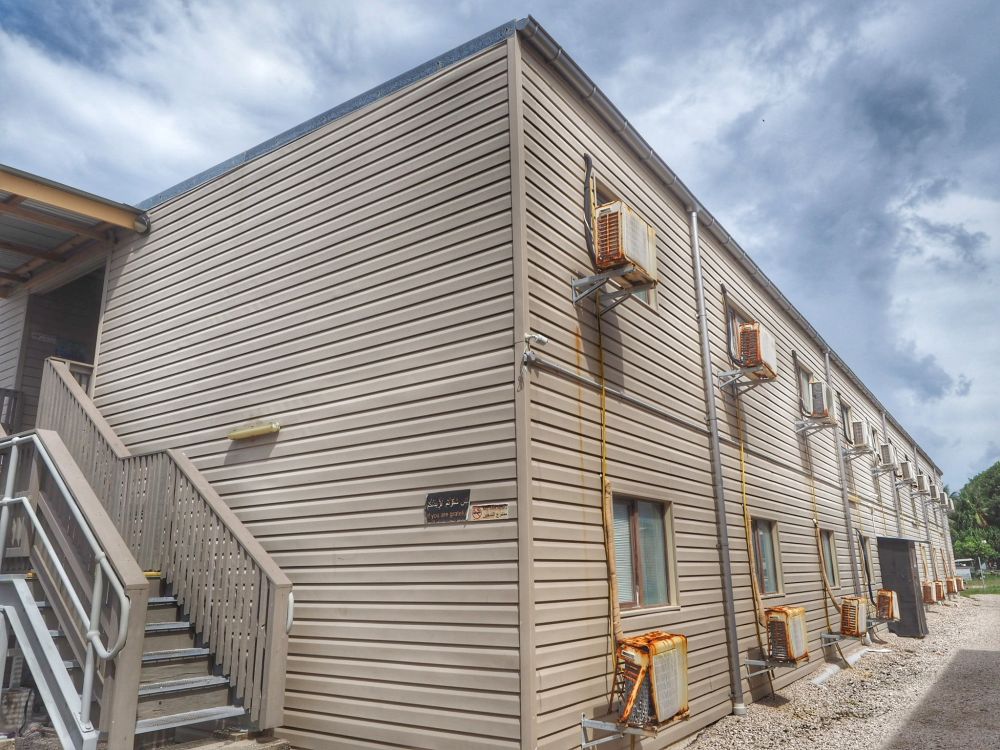
And who is coming to Nauru in the first place? My Airbnb host told me about his previous guests, who were typically businessmen, consultants or “country-hopping” travellers like me, who wanted to travel the world. It’s relatively rare for someone to drop by Nauru at the beginning of their travel career, typically after 100-150 countries, they’ll get to this region. We talked a lot about how to boost tourism on Nauru. The best idea so far seems to be to organise a half marathon, as there are not many places in the world where you can see the whole country in a half marathon. And there are almost exactly the same length of road here: a 19km circular route, plus a few kilometres of tarmac road to a lake. But I think a lot of things would have to be shaken up here to make the idea viable. Abolish the visa requirement, which is unique among the countries in the region, renovate the accommodation and clean up the whole country – as elsewhere, the beaches in particular are a dismal sight.
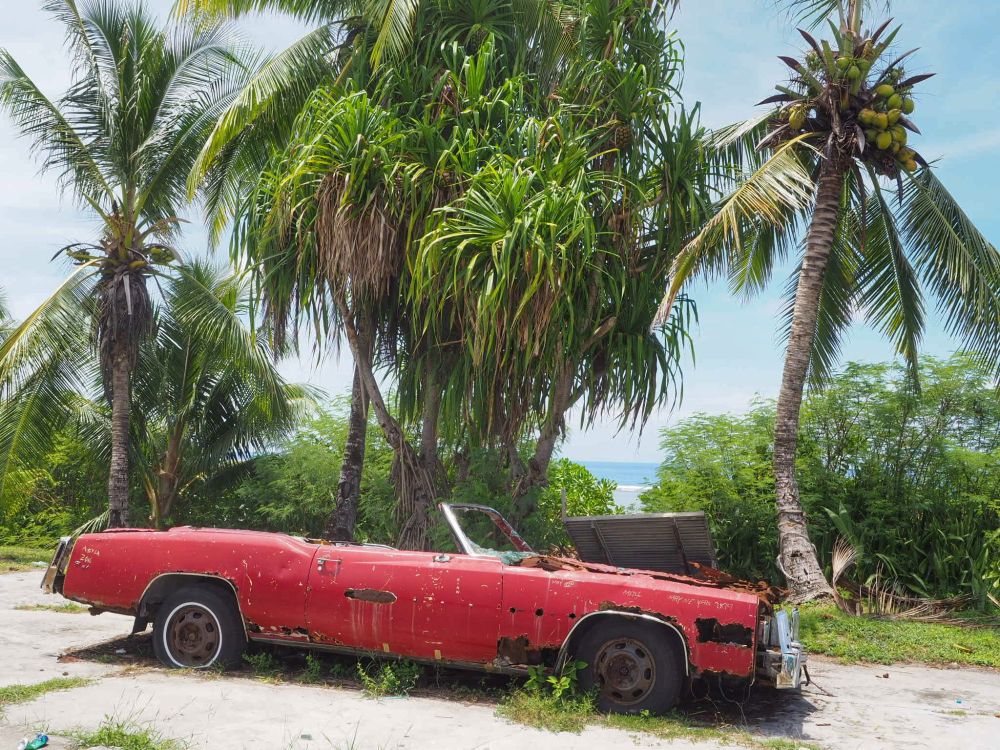
Indeed, everyone who says you can go somewhere much nicer and more exciting for the money is right – the Maldives, or even Bora Bora. But there are travellers, even if only a few dozen, who get it into their heads to see what this tiny island has to offer. And that thought never left me until I bought my plane ticket here. Would I come back? No. Do I regret leaving? No. I’m sure I’ll always remember this strange little island.
The article was originally published in National Geographic

